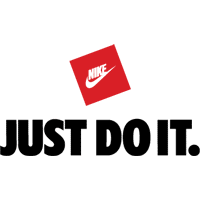
An emoticon, short for "emotion icon", also known simply as an emote, is a pictorial representation of a facial expression using characters—usually punctuation marks, numbers, and letters—to express a person's feelings, mood or reaction, or as a time-saving method.

A smiley, sometimes referred to as a smiley face, is a basic ideogram that represents a smiling face. Since the 1950s it has become part of popular culture worldwide, used either as a standalone ideogram, or as a form of communication, such as emoticons. The smiley began as two dots and a line to represent eyes and a mouth. More elaborate designs in the 1950s emerged, with noses, eyebrows, and outlines. A yellow and black design was used by New York-based radio station WMCA for its "Good Guys" campaign in the early 1960s. More yellow-and-black designs appeared in the 1960s and '70s, including works by Franklin Loufrani and Harvey Ross Ball. Today, The Smiley Company holds many rights to the smiley ideogram and has become one of the biggest licensing companies globally.

ZDNET is a business technology news website owned and operated by Red Ventures. The brand was founded on April 1, 1991, as a general interest technology portal from Ziff Davis and evolved into an enterprise IT-focused online publication.

The Wonderbra is a type of push-up underwire brassiere that gained worldwide prominence in the 1990s. Although the Wonderbra name was first trademarked in the U.S. in 1955, the brand was developed in Canada. Moses (Moe) Nadler, founder and majority owner of the Canadian Lady Corset Company, licensed the trademark for the Canadian market in 1939. By the 1960s the Canadian Lady brand had become known in Canada as "Wonderbra, the company." In 1961 the company introduced the Model 1300 plunge push-up bra. This bra became one of the best-selling Canadian styles and is virtually identical to today's Wonderbra.

DreamCatcher Interactive Inc. was a Canadian video game publisher founded in 1996 by Richard Wah Kan. It was best known for its adventure games. In 2006, the company became a subsidiary of JoWooD Entertainment. In 2011, the company went into administration along with its parent JoWooD and all assets were purchased by Nordic Games Holding. The DreamCatcher Interactive brand is currently being used as a publishing label for THQ Nordic.

Carter's Ink Company was an American manufacturer of ink and related products, based first in Boston and later in Cambridge, Massachusetts. It was once the largest ink manufacturer in the world.

TJ Maxx is an American department store chain, selling at prices generally lower than other major similar stores. It has more than 1,000 stores in the United States, making it one of the largest clothing retailers in the country. TJMaxx is the flagship chain of the TJX Companies. It sells men's, women's and children's apparel and shoes, toys, bath and beauty, accessories, and home products ranging from furniture to kitchen utensils.
Successories is a producer and retailer of motivational office art, mostly featuring photographs paired with sentiments about motivation, teamwork, and perseverance. The word "Successories" is itself a registered trademark.

Cicis is an Italian American chain of buffet restaurants based in Coppell, Texas, specializing in pizza. The company was founded in 1985, and started franchising by 1987. There are 299 franchised and corporately owned restaurants in 24 states. In November 2015, the company began a new marketing campaign which included the renaming of the company to Cicis, along with the addition of a new logo and redesigned website.

Don Ed Hardy is an American tattoo artist known for his tattoos, strong influence on the development of modern tattoo styles, and his eponymous apparel and accessories brand.

A motivational poster, or inspirational poster, is a type of poster commonly designed for use in schools and offices.

Mega Brands Inc. is a Canadian children's toy company currently owned by Mattel. Mega Bloks, a line of construction set toys, is its most popular product. Its other brands include Mega Construx, Mega Puzzles, Board Dudes and Rose Art. The company distributes a wide range of construction toys, puzzles, and craft-based products.
Social commerce is a subset of electronic commerce that involves social media and online media that supports social interaction, and user contributions to assist online buying and selling of products and services.

CNET is an American media website that publishes reviews, news, articles, blogs, podcasts, and videos on technology and consumer electronics globally. CNET originally produced content for radio and television in addition to its website and now uses new media distribution methods through its Internet television network, CNET Video, and its podcast and blog networks.
Paula Beth Begoun, also known as "The Cosmetics Cop", is an American talk radio host, author, and businesswoman. She is the founder of Paula's Choice and Beginning Press Publishing. She is known for her view that skin care and cosmetics should be based on ingredients that have been subjected to peer reviewed research.
Zazzle is an American online marketplace that allows designers and customers to create their own products with independent manufacturers, as well as use images from participating companies. Zazzle has partnered with many brands to amass a collection of digital images from companies like Disney, Warner Brothers and NCAA sports teams. Zazzle claims to have over 300 million unique products listed on the site.
Psion Teklogix Inc. was the operational business of Psion.

Three stripes is a trademark of Adidas consisting of three parallel lines, which typically feature along the side of Adidas apparel. Adidas was known for this branding early in its history, with its owner, Adolf Dassler, describing it as "The three stripe company".

Just Do It or JDI for short is a trademark of shoe company Nike, and it is one of the core components of Nike's brand. The slogan was coined in 1988 at an advertising agency meeting. The founder of the Wieden+Kennedy agency, Dan Wieden, credits the inspiration for his "Just Do It" Nike slogan to Gary Gilmore’s last words: "Let's do it." The "Just Do It" campaign allowed Nike to further increase its share of the North American domestic sport-shoe business from 18% to 43%, from 1988 to 1998. In many Nike-related situations, "Just Do It" appears alongside the Nike logo, known as the Swoosh.
Dynabook Inc., formerly Toshiba Client Solutions Co., Ltd., is a Japanese personal computer manufacturer owned by Sharp Corporation; it was owned by, and branded as, Toshiba from 1958 to 2018. It claims its Toshiba T1100, launched in 1985, as the first mass-market laptop PC. Toshiba had used the brand name "DynaBook" or "dynabook" since 1989, but Dynabook became the worldwide brand in 2019.














